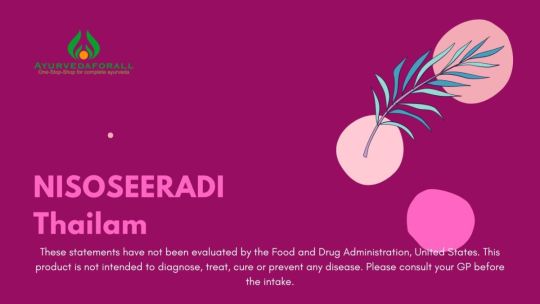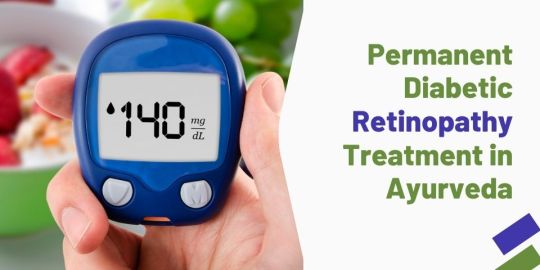#Diabetic Neuropathy Treatment In Ayurveda
Text
Advances in Open Angle Glaucoma Treatment Sanjeevan Netralaya
Open Angle Glaucoma is the most common form of Glaucoma and affects the patient for life. It is caused when the eye’s drainage canal get blocked thus damaging the optic nerve. It accounts for over 90% of all Glaucoma cases.
Your quality of life is important to us which is why at Sanjeevan Netralaya, our focus is to cure you in the quickest and the most effective way through our Ayurvedic treatment that cause absolutely NO SIDE EFFECTS!

Open-attitude glaucoma is the maximum common form of the sickness. The drainage attitude shaped through the cornea and iris stays open, however the trabecular meshwork is partly blocked. This causes pressure in the attention to progressively boom. This strain damages the optic nerve.
Is open-perspective glaucoma extreme?
It is a modern circumstance and is the most not unusual motive of irreversible blindness worldwide. Primary open angle glaucoma (poag) is a subset of the glaucomas defined by means of an open, ordinary acting anterior chamber perspective and raised intraocular strain (iop), and not using a other underlying ailment
What is the difference between open and closed-angle glaucoma?
Variations in angle
In open-angle glaucoma, the iris is in the right role, and the uveoscleral drainage canals are clean. But the trabecular meshwork isn't always draining well. In closed-perspective glaucoma, the iris is squeezed towards the cornea, blockading the uveoscleral drains and the trabecular meshwork.
#sanjeevannetralaya#health & fitness#ayurveda#diabetic neuropathy treatment in ayurveda#open angle glaucoma treatment#glaucoma treatment in ayurveda#glaucoma treatment#glaucoma#india#treatment for neuropathy#diabetic neuropathy treatment#ayurvedic eye treatment#blue eyes#eye health#eyesight
1 note
·
View note
Text
Nisoseeradi Thailam -Benefits, Ingredients, Indications, Dosage, Usage, Preparation, Side effects, Equivalent Medicines, Research Papers
Nisoseeradi Thailam -Benefits, Ingredients, Indications, Dosage, Usage, Preparation, Side effects, Equivalent Medicines, Research Papers
Nisoseeradi thailam is an Ayurvedic medicine used in the treatment of diabetic carbuncles and wounds. This medicine is in the form of herbal oil for external application.
BENEFITS OF NISOSEERADI THAILAM
This medicine is particularly used in the management of chronic wounds associated with diabetes.
INDICATIONS OF NISOSEERADI THAILAM
Prameha pidaka – diabetic carbunclesVrana – chronic…

View On WordPress
0 notes
Text
numbness, and discomfort. Diabetes is the leading cause of neuropathy, accounting for up to 70% of all cases. While anti-inflammatory medicines and other treatments can be beneficial, did you know that the foods you eat can influence your neuropathy symptoms? Learn how dietary modifications can help reduce neuropathy pain and inflammation.
At DRC, we treat a wide range of diabetes-related neurological problems, led by our specialist Dr Soumya. Dr. Soumya may recommend dietary adjustments as part of your treatment strategy to assist alleviate your neuropathy symptoms. Here’s what you need to know.
Carbohydrates, blood sugar levels, and nerve function
Controlling your blood sugar levels is essential if you have diabetes. Chronically high blood sugar destroys nerves, preventing them from transmitting correct impulses. The basic technique for maintaining healthy blood sugar levels is to limit carbohydrate intake. This includes eating healthful carbohydrates such as whole grains, fruits, and non starchy vegetables and staying within the carbohydrate range prescribed by your doctor. This will keep your neuropathy from worsening and will help you avoid diabetic neuropathy problems like foot ulcers.
The lowdown on dietary fat
The kind and amount of fat in your diet can have an impact on nerve function. Elevated fat levels in the blood can damage sensitive nerve fibres and cause or aggravate neuropathy. The saturated fat present in animal meals has the greatest influence on boosting LDL, a dangerous type of cholesterol. Reduced saturated fat consumption can assist support nerve function and prevent neuropathy from worsening. Here are several examples:
Limit your intake of fast food.
Select low-fat dairy products.
Avoid eating processed meats.
Choose lean cuts of beef.
Instead of frying, bake and broil.
Reduce your use of animal products.
Choose unsaturated oils such as olive, sesame, and walnut.
Mercury, fish, and neuropathy
Fish provides vital fats that your body requires to function properly, and while it is advised that you eat at least two meals each week to get health advantages, if you have neuropathy, you must exercise caution. Certain fish contain high quantities of mercury, a toxin that, at excessive levels, can damage nerves and cause or aggravate neuropathy.
Larger fish collect more mercury than smaller fish because they live longer. Mercury levels are high in king mackerel, orange roughy, swordfish, tuna, and grouper. Choose low-mercury fish if you have neuropathy, such as:
Cod, salmon, catfish, pollock, haddock, and tilapia are all examples of fish.
Eliminating alcohol from the equation
Alcohol is poisonous to your nerves, and drinking too much of it can induce or worsen neuropathy. Aside from being physically hazardous to nerve tissue, alcohol lowers absorption of B vitamins and vitamin E, both of which are essential for neuron function. To best control your neuropathy, avoid alcohol completely.
Nutrition and nerve support
Adopting a nerve-supportive dietary pattern is one of the most important actions you can take to manage neuropathy. Vitamins B6, B12, folate, thiamin, and E are all required for normal nerve function. A varied diet rich in lean protein, fruits, vegetables, healthy fats, and whole grains is the best way to receive enough of these elements. If you have a deficiency, your provider may prescribe supplementing one or more of these vitamins in addition to your diet.
Managing neuropathy entails taking the necessary steps to halt its progression, reduce the risk of consequences, and relieve related symptoms. Having the appropriate care team might mean the difference between life and death. To schedule an appointment with Dr. Soumya for effective diabetic neuropathy care, call us or book your request online.
Related-
Know more about Ayurveda Diabetes Reversal.
0 notes
Text
Diabetic Neuropathy Treatment Near Geeta Mandir- Gurudwara, New delhi

At SKK Ayurveda & Panchakarma Clinic, our team of experienced professionals provides a diabetic neuropathy treatment near geeta mandir- gurudwara, new delhi. Our treatment is based on ancient principles of Ayurveda and Panchakarma. We focus on treating both the root cause of the disease as well as the symptoms.
0 notes
Text
Get Ayurvedic Treatment of Diabetes in Kundan Nagar Clinic
Introduction: Diabetes mellitus, commonly known as diabetes, is a chronic metabolic disorder characterized by elevated blood sugar levels. It affects millions of people worldwide and can lead to various complications if not managed effectively. While conventional medicine offers several treatment options, Shuddhi Ayurveda Panchkarma NDMC, CAPF, DDA, DJB, CGHS, Approved Clinic in Kundan Nagar, the ancient Indian system of medicine, provides a holistic approach to managing diabetes. Ayurvedic treatments aim to restore balance to the body and promote overall well-being. In this article, we will explore the principles and practices of Ayurveda in the treatment of diabetes.
Understanding Ayurveda: Ayurveda, which translates to "knowledge of life," is a comprehensive system of medicine that originated in India thousands of years ago. It emphasizes the interconnectedness of the mind, body, and spirit and focuses on maintaining a state of balance for optimal health. According to Ayurveda, diabetes is caused by an imbalance in the body's doshas, particularly the Kapha and Vata doshas.
Principles of Ayurvedic Treatment for Diabetes:
Diet and Nutrition: Ayurveda places great emphasis on a balanced and personalized diet. Ayurvedic practitioners recommend a diet low in refined carbohydrates, sugars, and saturated fats. They emphasize the consumption of fresh fruits, vegetables, whole grains, lean proteins, and healthy fats. Specific dietary recommendations may vary depending on an individual's constitution and the imbalance in their doshas.
Herbal Remedies: Shuddhi Ayurveda Panchkarma NDMC, CAPF, DDA, DJB, CGHS, Approved Clinic in Kundan Nagar utilizes a wide range of herbs and botanical preparations to support diabetes management. Some commonly used herbs include bitter melon, fenugreek, turmeric, Indian gooseberry (amla), and neem. These herbs have properties that help regulate blood sugar levels, improve insulin sensitivity, and protect against complications associated with diabetes.
Lifestyle Modifications: Ayurvedic treatments for diabetes often involve making positive changes to one's lifestyle. Regular exercise, such as yoga and brisk walking, helps improve insulin sensitivity and aids in weight management. Stress management techniques, such as meditation and breathing exercises, are also recommended, as chronic stress can worsen diabetes symptoms.
Panchakarma Therapy: Panchakarma, a detoxification and rejuvenation therapy in Ayurveda, is often employed to remove accumulated toxins and restore balance in the body. Specific treatments like Virechana (therapeutic purgation) and Basti (medicated enema) may be used to eliminate excess doshas and improve overall metabolic function.
Ayurvedic Massage and Body Therapies: Abhyanga, a form of therapeutic massage using warm herbal oils, is commonly used in Ayurveda to improve circulation, reduce stress, and promote overall well-being. Massage techniques specifically targeting the feet and lower legs, known as Padabhyanga, can help alleviate peripheral neuropathy, a common complication of diabetes.
Conclusion: Ayurveda offers a holistic approach to the treatment of diabetes, focusing on restoring balance and promoting overall well-being. By addressing the root causes of the disease, Ayurvedic treatments aim to manage blood sugar levels, improve insulin sensitivity, and prevent complications. However, it is important to note that Ayurvedic treatments should be undertaken under the guidance of Shuddhi Ayurveda Panchkarma NDMC,CAPF, DDA, DJB, CGHS, Approved Clinic in Kundan Nagar practitioner and used as complementary therapy alongside conventional medical treatments. If you have diabetes or are at risk, consult with your healthcare provider to explore how Ayurveda can be integrated into your overall diabetes management plan. Remember, personalized care and a multidisciplinary approach are crucial for successful diabetes management.
1 note
·
View note
Text

Introduction to Diabetes and Types
Studies have shown that India ranks second after China in the global diabetes epidemic, with 77 million people with diabetes. Of these, 12.1 million are aged >65 years, which is estimated to increase to 27.5 million in the year 2045. There are two most common types of diabetes: Type 1 diabetes and Type 2 diabetes
With Type 1 diabetes, the body stops producing insulin as the insulin-producing cells in the pancreas are destroyed. In this condition, a person must take insulin injections daily to regulate blood glucose levels.
Type 2 diabetes is a serious disease where your body may not respond to insulin, or the body makes insulin but not enough or does not use it well, and thus the sugar levels could go haywire. Thus, sugar steadily builds up in the blood, eventually leading to the blood vessels hardening, causing heart attacks, kidney failure, and stroke.
What are the risk factors for type 2 diabetes?
Risk factors that can increase diabetes include
obesity and a sedentary lifestyle,
uncontrolled blood glucose synthesis in the liver,
hereditary causes
Dysfunctional beta-cell in the pancreas
What are the symptoms of Type 2 diabetes?
You may have diabetes if you have
Blooded vision
Frequent urination
Increased hunger
Slowed healing of wounds, red, swollen, tender gums, and
Tingling hands and feet. If you experience such symptoms, consult your doctor immediately.
What are the complications of Type 2 Diabetes?
Long-term untreated diabetes affects the nerve, kidneys, heart, and eyes.
Nerve damage: Diabetes damages the nerves in the legs and arms. These cause numbness, pain, and tingling that start with the fingers and toes and spread along the legs. If this is left untreated, a person can lose all sense of feeling. Diabetic neuropathy is a family of progressive nerve disorders.
Kidney damage: Long-term uncontrolled blood sugar leads to kidney failure that requires dialysis or a kidney transplant.
Heart and blood vessels: For people with diabetes, who have high blood glucose cause blood vessels in the body to become damaged; when this happens, plaque can form in the blood vessels, making it difficult for the blood to flow.
Eye damage: Diabetes, if left untreated, can damage the retina of the eyes, which may lead to blindness.
Nutrients and vitamins:
Diabetic patients tend to have less nutrient absorption for vitamins like Vit C, D3, calcium, and Vit, herbs. Defective insulin secretion and insulin sensitivity cause metabolic disorders.
Ayurvedic Approach for Type 2 Diabetes
In Ayurveda, diabetes is described as ‘Madhumeha’. Diabetes mellitus is described as Vaat Pramehaand Diabetes insipidus is described as Kaph Prameha
According to Ayurveda, imbalances of kaph dosh, pitt dosh together with vaat dosh are the main cause of Madumeha. Vaat, kaph, and Pitt block the pathways connected to the mamsa (muscle) and meda (fat) tissues.
Eating too much, not exercising, being overweight—all these factors aggravate the vaat dosh of the body, where the body does not make enough insulin or does not use it well, and that leads to diabetes.
Ayurveda suggests Jamun and its seeds are highly effective herbs against diabetes. Known as jamboline and jambosine, the fruit seeds slow down the release of sugar into the bloodstream and increase insulin levels. Diabetes symptoms such as frequent urination and thrusting can be reduced with it since it converts starch into energy. In addition to reducing serum glucose levels and insulin resistance, the herb also reduces dyslipidemia and enhances the function of B cells. As a result, the herb rejuvenates the pancreatic cells at the cellular level.
What is the Treatment for Type 2 Diabetes?
Treatment of type 2 diabetes focus on the combination of diet and lifestyle changes along with medicines.
Lifestyle changes: Yoga has shown to be a great option in the treatment of diabetes. Regularly practising yoga can help to control blood sugar and increase insulin sensitivity in the cells. In addition to helping reduce blood sugar, yoga benefits by reducing stress levels and reducing the risk of heart problems by protecting cardiac health. Regular yoga helps to improve nerve function and boost metabolism, thereby improving nerve health.
Diet changes: It is recommended to consume low-fat foods, avoid any dairy-based products, and incorporate certain foods, such as bitter ground, Bengal gram, and fenugreek seeds, to control blood sugar.
Blood sugar monitoring: Regular blood sugar monitoring is beneficial in the treatment of type 2 diabetes.
Medication:
Although it is now one of the most common yet challenging health issues that people face, a rooted approach plus modern technology provide Meta medicine in the form of DiabGavyam, which is effective and consists of some of the best herbs for the treatment of type 2 diabetes.
DiabGavyam activates the pancreas, stimulates the secretion of a balanced amount of insulin, and regulates the metabolism of carbohydrates. The formulation is blended with the herbs Jamun Beej, and Madhunashak that protect the nerve cells in the retina, thus fortifying the blood vessel, and promoting blood circulation, thus lowering the chance of diabetic retinopathy.
While medicine helps in the control of blood sugar; it does not have any side effects after taking a tablet. You can take 1 or 2 tablets twice a day or as directed by your physician.

#Control Blood sugar Medicine#Type 2 Diabetes Medicine#Diabetes Supplement#DiabGavyam#Diabetes Controller#Glucose Controller#Insulin Booster
0 notes
Text
Ayurvedic Approach To Type 2 Diabetes
Introduction to Diabetes and Types
Studies have shown that India ranks second after China in the global diabetes epidemic, with 77 million people with diabetes. Of these, 12.1 million are aged >65 years, which is estimated to increase to 27.5 million in the year 2045. There are two most common types of diabetes: Type 1 diabetes and Type 2 diabetes
With Type 1 diabetes, the body stops producing insulin as the insulin-producing cells in the pancreas are destroyed. In this condition, a person must take insulin injections daily to regulate blood glucose levels.
Type 2 diabetes is a serious disease where your body may not respond to insulin, or the body makes insulin but not enough or does not use it well, and thus the sugar levels could go haywire. Thus, sugar steadily builds up in the blood, eventually leading to the blood vessels hardening, causing heart attacks, kidney failure, and stroke.
What are the risk factors for type 2 diabetes?
Risk factors that can increase diabetes include
obesity and a sedentary lifestyle,
uncontrolled blood glucose synthesis in the liver,
hereditary causes
Dysfunctional beta-cell in the pancreas
What are the symptoms of Type 2 diabetes?
You may have diabetes if you have
Blooded vision
Frequent urination
Increased hunger
Slowed healing of wounds, red, swollen, tender gums, and
Tingling hands and feet. If you experience such symptoms, consult your doctor immediately.
What are the complications of Type 2 Diabetes?
Long-term untreated diabetes affects the nerve, kidneys, heart, and eyes.
Nerve damage: Diabetes damages the nerves in the legs and arms. These cause numbness, pain, and tingling that start with the fingers and toes and spread along the legs. If this is left untreated, a person can lose all sense of feeling. Diabetic neuropathy is a family of progressive nerve disorders.
Kidney damage: Long-term uncontrolled blood sugar leads to kidney failure that requires dialysis or a kidney transplant.
Heart and blood vessels: For people with diabetes, who have high blood glucose cause blood vessels in the body to become damaged; when this happens, plaque can form in the blood vessels, making it difficult for the blood to flow.
Eye damage: Diabetes, if left untreated, can damage the retina of the eyes, which may lead to blindness.
Nutrients and vitamins:
Diabetic patients tend to have less nutrient absorption for vitamins like Vit C, D3, calcium, and Vit, herbs. Defective insulin secretion and insulin sensitivity cause metabolic disorders.
Ayurvedic Approach for Type 2 Diabetes
In Ayurveda, diabetes is described as ‘Madhumeha’. Diabetes mellitus is described as Vaat Pramehaand Diabetes insipidus is described as Kaph Prameha
According to Ayurveda, imbalances of kaph dosh, pitt dosh together with vaat dosh are the main cause of Madumeha. Vaat, kaph, and Pitt block the pathways connected to the mamsa (muscle) and meda (fat) tissues.
Eating too much, not exercising, being overweight—all these factors aggravate the vaat dosh of the body, where the body does not make enough insulin or does not use it well, and that leads to diabetes.
Ayurveda suggests Jamun and its seeds are highly effective herbs against diabetes. Known as jamboline and jambosine, the fruit seeds slow down the release of sugar into the bloodstream and increase insulin levels. Diabetes symptoms such as frequent urination and thrusting can be reduced with it since it converts starch into energy. In addition to reducing serum glucose levels and insulin resistance, the herb also reduces dyslipidemia and enhances the function of B cells. As a result, the herb rejuvenates the pancreatic cells at the cellular level.
What is the Treatment for Type 2 Diabetes?
Treatment of type 2 diabetes focus on the combination of diet and lifestyle changes along with medicines.
Lifestyle changes: Yoga has shown to be a great option in the treatment of diabetes. Regularly practising yoga can help to control blood sugar and increase insulin sensitivity in the cells. In addition to helping reduce blood sugar, yoga benefits by reducing stress levels and reducing the risk of heart problems by protecting cardiac health. Regular yoga helps to improve nerve function and boost metabolism, thereby improving nerve health.
Diet changes: It is recommended to consume low-fat foods, avoid any dairy-based products, and incorporate certain foods, such as bitter ground, Bengal gram, and fenugreek seeds, to control blood sugar.
Blood sugar monitoring: Regular blood sugar monitoring is beneficial in the treatment of type 2 diabetes.
Medication:
Although it is now one of the most common yet challenging health issues that people face, a rooted approach plus modern technology provide Meta medicine in the form of DiabGavyam, which is effective and consists of some of the best herbs for the treatment of type 2 diabetes.
DiabGavyam activates the pancreas, stimulates the secretion of a balanced amount of insulin, and regulates the metabolism of carbohydrates. The formulation is blended with the herbs Jamun Beej, and Madhunashak that protect the nerve cells in the retina, thus fortifying the blood vessel, and promoting blood circulation, thus lowering the chance of diabetic retinopathy.
While medicine helps in the control of blood sugar; it does not have any side effects after taking a tablet. You can take 1 or 2 tablets twice a day or as directed by your physician.
0 notes
Text
Best Naturopathy Centre for Cancer in India

Naturopathy is a treatment that is a combination of modern and traditional treatment. The base of naturopathy is based on the value of a healthy diet, clean fresh water, sunlight, exercise and stress management. Specialized naturopaths perform the treatment. There are three significant naturopaths:
Naturopathic Physicians: These are also known as naturopathic doctors. They usually study for four-year in medical school to get a recognized certification.
Traditional Naturopath: Traditional naturopath has no licenced certificate, so many people do not accept them.
Healthcare Providers: Some medical doctors, dentists, chiropractors, and nurses have training in naturopathic medicine.
Neuropathy covers various conditions, such as allergies, digestion problems, obesity, hormonal imbalance, chronic pain, depression, anxiety, and diabetes. Those suffering from any of these conditions can consult with Hiims. It is known as the best naturopathy centre for cancer in India that accomplishes treatment based on Ayurveda. For further information, visit us now!
0 notes
Text
Ayurvedic Massage in Trichy - River Salon Day Spa
India has used ayurvedic treatments for countless years. We are all aware of the advantages of this science.
It is a science that outlines the means of leading a healthy life and is a part of our scriptures. The text outlines the advantages of fresh fruits and vegetables in daily life as well as the therapeutic effects of locally grown herbs and plants. The Vedas describe using therapeutic oil to improve people's natural wellbeing.
A natural, well-balanced diet supports a person's inherent wellbeing, which is the foundation of the entire Ayurvedic philosophy. The second is using massages to help the body detox and unwind. These massages are typically Abhyangas, or full-body massages. This massage is recommended to be given daily in the morning before having a bath. Ayurvedic Massage in Trichy
• Ayurvedic massage
The Abhyanga massage is among the most well-known in Ayurveda. In this massage, warm oil is applied to the person through a particular conduit while the therapist gently strokes the person while letting them rest. People's emotional equilibrium significantly improves as a result of the gentle, steady strokes that help them reconcile their strengths. It helps the person's lymphatic drainage and the skin condition improves.
• Massage in Ayurveda for Regular Blood Pressure
The blood pressure of those undergoing an ayurvedic massage is lowered. The blood can flow at a controlled rate because to the gentle and constant pressure on the veins. The heart rate is lowered as a result of this. People can take advantage of this natural medical benefit without raising their body's toxin level. Ayurvedic Massage in Trichy
• Ayurveda Massage for Patients with Neuropathy
A burning feeling is experienced by many diabetic individuals in their feet. They frequently receive referrals from ayurvedic doctors for foot massages. It has a calming and cooling impact on the nerves. Patients with diabetes have benefited from this treatment.
• cracked heels treated with ayurvedic massage
Several folks experience the excruciating ache of broken heels. It's not a pretty sight when the skin on the foot begins to crack due to dryness. The broken heels of many women are seen being attempted to be hidden from friends and relatives. Consequently, getting regular foot massages is a fantastic technique to resolve this issue because they enhance the moisture content of the feet and eliminate the uncomfortable cracks.
• Massage Therapy in Ayurveda for Back Pain
Back discomfort is a frequent issue that has been reported in people of all ages. Many have reported great relief from massages because they help clear congested nerves, relax, and release stress that has built up over time. With about six months of regular massages from therapists, many persons with chronic back pain are believed to experience a great deal of alleviation.
#fullbodymassageintrichy#massagecenterintrichy#bestmassagespaintrichy#bodymassageintrichy#trichyspacenter#trichybodymassagecentre
0 notes
Text
Ayurvedic Massage Chennai - River Salon Day Spa
Ayurvedic massage for normal blood pressure
Those receiving an ayurvedic massage experience a reduction in blood pressure. Because of the steady, moderate pressure on the veins, the blood may flow at a controlled rate. As a result, the heart rate is decreased. People can profit from this all-natural medical benefit without putting more toxins in their bodies. ayurvedic massage chennai
Ayurvedic Massage for Neuropathy Patients
Many diabetics report feeling a burning sensation in their feet. Ayurvedic physicians commonly recommend them to patients who want foot massages. On the nerves, it provides a cooling and relaxing effect. This treatment has been helpful for diabetic patients.
Therapy of cracked heels with ayurvedic massage
Many people deal with the severe pain of broken heels. When the skin on the foot starts to crack from dryness, it's not a cute thing. Many women are observed trying to hide their damaged heels from friends and family. Therefore, regular foot massages are a great way to deal with this problem because they increase the moisture content of the feet and get rid of the itchy cracks.
Ayurvedic Massage Therapy for Back Pain
People of all ages frequently report experiencing back discomfort. Because massages help people relax and release stress that has accumulated over time, people often say that they get a lot of relief from them. Many people with chronic back pain are thought to notice significant relief after roughly six months of receiving frequent massages from professionals.
Massage in Ayurveda to Soften Skin
Therapeutic oils are very beneficial to the skin. They help to expel toxins and soften the skin, enhancing its flexibility and conformability. In the past, ayurvedic massages were utilised to enhance a person's attractiveness in addition to its therapeutic benefits. ayurvedic massage chennai
#ayurvedicmassagechennai#keralaayurvedicmassageinchennai#ayurvedicfullbodymassageinchennai#bestayurvedicmassageinchennai#bestayurvedicspainchennai
0 notes
Text
Diabetic Retinopathy Treatment In Ayurveda
Let’s learn about the disease. Diabetic retinopathy is a form of diabetic complication that affects the eyes of a patient. When the overall blood sugar level of an individual’s body starts increasing, it begins inflicting damage on the tiny vessels of your retina. It, in turn, can prompt the part of the eyes to either leak fluid or cause severe bleeding, which is also known as vitreous hemorrhage. Besides, the condition can also distort your vision and make everything appear blurred or fuzzy.
If left untreated, the disease can progress to its advanced stage with loss of vision.
Symptoms of Diabetic Retinopathy include
Unlike a few other eye conditions, diabetic retinopathy does not generally cause symptoms at the early stage.
However, if you are conscious enough, then you may sense the following signs, even when the disease is at its early stage.
A distant blurriness or vagueness in your vision
Weakened color vision
Empty spots or darker objects in the field of vision
The occurrence of photophobia or inability to withstand glare
Risk Factors:
Anyone with type 1 diabetes or type 2 diabetes is at risk of diabetic retinopathy.
People who are at a greater risk are the ones who:
have had diabetes for a long time
have a persistently high blood sugar (blood glucose) level
have high blood pressure
have high cholesterol
Causes of Diabetic Retinopathy:
The number one cause of diabetic retinopathy is diabetes. Extended sugar stages can harm the small blood vessels that nourish the retina and may in a few cases block them absolutely. As a end result, the blood deliver to the retina from these damaged blood vessels is cut off and vision is affected.
Because of the dearth of blood deliver, the eye may additionally create boom elements that lead to diabetic macular edema, ensuing in reduced imaginative and prescient, or proliferative diabetic retinopathy, that can cause retinal detachment and vision loss.

#sanjeevannetralaya#health & fitness#ayurveda#neuropathy#diabetic retinopathy#diabetic neuropathy treatment#diabetic neuropathy treatment in ayurveda#ayurvedic eye treatment#sanjeevan netralaya#eye health#eye care#eye care products#ayurvedic treatment for eyes#ayurveda for eyes#treatment for eyes in ayurveda#ayurvedic remedies for weak eye sight#ayurvedic medicine#ayurvedic treatment for diabetic retinopathy#best ayurvedic treatment for diabetic retinopathy#diabetic retinopathy treatment#ayurveda treatment for diabetic retinopathy#diabetic retinopathy ayurvedic treatment#diabetic retinopathy cure
0 notes
Text
Mattratva Acupressure Therapy | Magnet Therapy Treatment In Gomati Nagar Lucknow

Navita Srivastava is a practicing Acupressure therapist, specialized in treating ailments from holistic root cause.She is specialist in pain management. Helping my patients to recover from pain at all levels both at physical and emotional. I have established Mattratva Acupressure and Therapy Clinic with the aim to treat chronic and acute conditions in a holistic manner by Magnet, Colour, Seeds & Sujok Therapy without using any medicines and surgery. The therapy is based on Ayurveda & Chines meridian
MATTRATVA ACUPRESSURE & THERAPY CLINIC.
Address-2/129,Vishal Khand-2,Gomti Nagar,Lucknow - 226010
Visit Us:www.maatc.co.in
Phone no:-9044793733
Natural treatment for pain
diabetic neuropathy treatment
Diabetes treatment
0 notes
Text
Diabetic Neuropathy Ayurvedic Treatment Perspective
Diabetic neuropathy is a serious diabetes disorder that affects the nerves. Continuous high blood sugar levels induced by diabetes over an extended length of time destroy the nerves in this condition. Diabetes neuropathy can develop over time, but the longer a person has diabetes (more than 20 to 25 years), the greater the risk. In patients with poor control, who are overweight, have higher levels of blood cholesterol and blood pressure, and are above the age of 40, incidences are more common. Though diabetes neuropathy can affect every nerve in the body, the most frequent type is peripheral neuropathy, which affects the arms and legs.
Ayurvedic Factors Contributing to Diabetic Neuropathy
When the sensitive nerve fibres are exposed to high blood sugar levels for an extended period of time, they are destroyed, resulting in diabetic neuropathy. Diabetic Neuropathy can also triggered by the following factors:
• Genetic factors may also play a role in the incidence of this ailment.
• Smoking and alcohol intake both cause nerve injury.
Diabetic Neuropathy Symptoms According to Ayurveda
Diabetic neuropathy symptoms are entirely dependent on the type of neuropathy present and which nerves are damaged.
1. Nervousness
2. The sensation of burning or tingling
3. Cramps and pain
4. Muscle weakness
5. Increased sensitivity to touch 6. Muscle weakness
7. Limb sluggishness
8. Inadequate coordination and balance of bodily components
Ayurvedic Treatment for Diabetic Neuropathy
Diabetic neuropathy, according to Ayurveda, is caused by Vata and Kapha dosha imbalances. The Ayurvedic treatment for diabetic neuropathy focuses on restoring dosha balance, regulating symptoms, and preventing them from worsening by controlling blood sugar levels. Treatment for diabetic neuropathy is mainly determined by the type of symptoms and neuropathy.
Treatment often focuses on minimising present symptoms and preventing the condition from worsening by maintaining blood sugar levels within a tight target range. External therapies such as Abhyangam, Karaskara Ksheeradhara, Dhanyamladhara, Pizhichil, Njavarakizhi, and Thakradhara are indicated in addition to internal drugs for Diabetic Neuropathy.
Related-
Know more about Ayurveda Diabetes Reversal.
0 notes
Text
Ayurvedic Thyroid and Gynaecological Treatment in Delhi
It's crucial to locate expert Ayurveda medical care when it comes to your health. We are a light of excellence at SKK Ayurveda in Delhi, providing specialist care for hypothyroidism and a variety of gynaecological issues. Our committed team of professionals is here to provide individualized care that puts your wellbeing first, whether it be for thyroid conditions, uterine fibroids, or ovarian cysts.
Hypothyroidism Treatment Centre and Thyroid Hospital in Delhi
As one of Delhi's top Ayurveda thyroid hospitals, SKK Ayurveda has assembled a group of knowledgeable endocrinologists who are committed to treating thyroid issues. Our goal is to treat thyroid-related disorders, such as hypothyroidism, to the highest possible standard.

Why Choose Our Ayurvedic Thyroid Hospital in Delhi?
1. Specialized Expertise
Our endocrinologists have a great deal of experience identifying and managing thyroid conditions. Their expertise guarantees accurate diagnoses and successful treatment regimens.
2. Comprehensive Care
In order to provide a comprehensive strategy that meets your unique needs, we provide a variety of treatments adapted to diverse thyroid disorders.
3. Advanced Diagnostics
Our clinic uses state-of-the-art diagnostic equipment to guarantee accurate assessments and individualized treatment plans.
Ayurvedic Uterine Fibroids and Ovarian Cyst Treatment in Delhi
SKK Ayurveda provides specialized treatment options for gynaecological issues like uterine fibroids and ovarian cysts in Delhi. Our group of knowledgeable gynaecologists is dedicated to offering you with practical solutions that enhance your quality of life.
Why opt for Our Ayurvedic Gynaecological Treatments?
Expert Gynaecologists
When it comes to identifying and managing problems like uterine fibroids and ovarian cysts, our gynaecological team has a plethora of experience. They provide individualized care that is responsive to your needs.
Conclusion: Your Health, Our Priority
In conclusion, SKK Ayurveda is your go-to place in Delhi for the best Ayurveda gynaecological care and thyroid treatments. Our devoted professionals are here to offer thorough and kind care, whether you need help with hypothyroidism, ovarian cysts, or uterine fibroids. For additional information about our services and to make an appointment, get in touch with Dr Tarun and Rani Gupta at [Your Contact Information] or go to [Your Website URL]. With us, your path to greater health begins.
For more details:
ndmc empanelled ayurveda hospital in delhi | nabh accredited panchakarma centre in delhi | crohn's disease treatment in delhi | diabetic neuropathy treatment in delhi | fungal infection diseases treatment in delhi | ayurvedic pcos treatment in delhi | ayurvedic arthritis treatment in delhi
0 notes
Photo

Diabetic retinopathy is one of the common health complications of diabetes mellitus, in which neurons and blood vessels of the retina get damaged, and a person loses his vision. In the prevention of this health complication, you can choose diabetic retinopathy treatment in Ayurveda.
#Diabetes Treatment In Ayurveda#Ayurvedic Tablets For Diabetes#Ayurvedic Treatment For Diabetes Type 2#Ayurvedic Herbs For Diabetes#Ayurvedic Remedies For Diabetes#Blood Sugar Treatment In Ayurveda#Diabetes Mellitus Treatment In Ayurveda#Diabetic Neuropathy Treatment In Ayurveda#diabetic retinopathy treatment in ayurveda#type 1 diabetes treatment in ayurveda#ayurvedic home remedies for diabetes#permanent cure for diabetes type 2 in ayurveda
0 notes
Text
Diabetic neuropathy treatment in Hadapsar Pune| Best Diabetes Treatment in Pune
Welcome to Dr. Giri Diabetes Freedom , one of the best Diabetes Neuropathy Doctor in Pune. Dr. Giri is a qualified Ayurveda doctor. They provide Aurvedic treatment on diabetics very well.The main concept of Advanced Ayurveda is medicine free lifestyle.
visit us :https://www.drgiridiabetesfreedom.com/index.html
1 note
·
View note